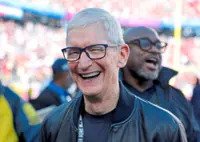The two largest Muslim organisations in the country were deafeningly silent about last week’s protests, at a time when the voice of moderation was sorely needed.
AHOK (whose real name is Basuki Tjahaja Purnama) has only himself to blame for what happened. He should have stayed clear from even remotely questioning his political opponent for what he believed was misusing one of the verses from the Quran to undermine his bid for re-election as the Governor of Jakarta.






